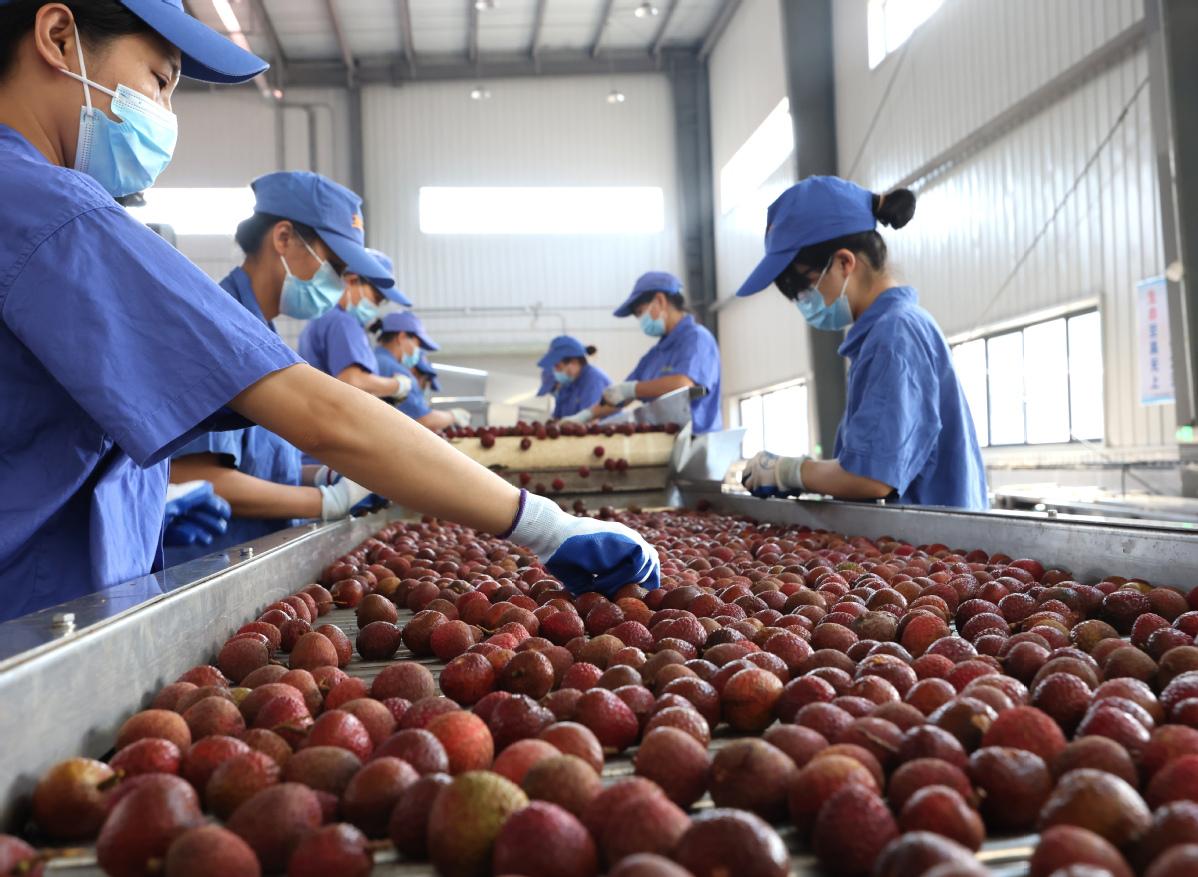Tech breakthrough makes litchi available year-round
BY :China Daily
UPDATED :2024-05-14

Employees sort litchis at a processing plant in Maoming, Guangdong province. (Qiu Quanlin/China Daily)
Thanks to breakthroughs in litchi preservation technology in South China's Guangdong province, more than 200 metric tons of litchis preserved in June last year gradually entered the market earlier this year.
Liang Qinru, deputy director of the Guangdong Provincial Department of Science and Technology, said the special freezing technique involves immediate pre-cooling, protective coloration and freezing, preserving the freshness of just-picked litchis.
"The core point is to quickly freeze and hibernate the flesh cells of litchi below -35℃, without damaging the original structure of the flesh, just like animals' hibernation," he said.
After thawing, the "frozen dormant litchi" has the same bright red color as the fresh fruit and the flesh remains crystal clear, Liang said, adding that the color and aroma can be maintained at about 80 to 90 percent of the original level.
Liang detailed the process while answering residents' questions about litchi production and storage on a livelihood hotline late last week.
He said his department had given strong support to scientists tackling the problem of litchi preservation in the past year, and the Guangdong Academy of Agricultural Sciences had now mastered the ultra-low temperature litchi preservation technology.
"This year we will strive to expand production capacity and use new technologies to preserve more than 2,000 tons of litchis, allowing consumers to enjoy fresh litchis all year round," Liang said.
"Meanwhile, the new litchi preservation technology will help solve the problem of litchi growers' income being affected by low prices during good harvest years."
Hu Shengchun, director of the department's agriculture and rural affairs division, said the researchers' technological breakthroughs allowed litchis to be preserved for a long time at low cost.
The frozen litchis preserved last year have been selling well on major e-commerce platforms, including Freshippo and JD.
Hu said that in the next few months the department will step up the promotion and application of the preservation technology to help promote the high-quality development of the litchi industry.
Guangdong's delicious litchis are loved by many people, but the preservation of the fruit has long troubled farmers and vendors. When refrigerated, the fruit can be stored for a maximum of 7 to 10 days, Hu said.
Ding Meihua, a white-collar worker from Guangzhou's Tianhe district, said she would buy frozen litchi if the fruit's taste remained unchanged.
Subtropical Guangdong is the largest litchi base in China, producing 1.3 million tons of litchis a year — more than 50 percent of the country's output.








